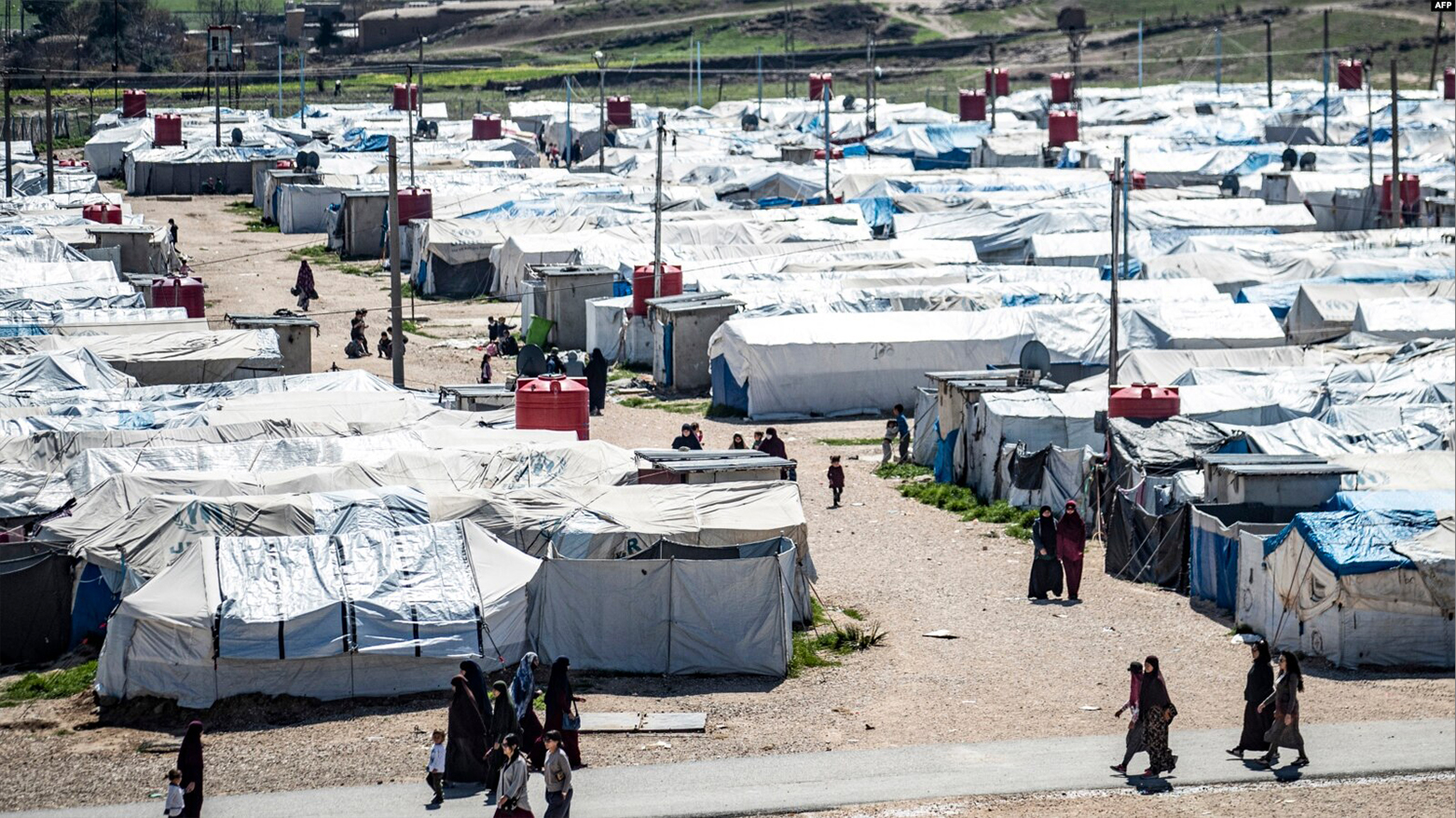US Aids Austria in Repatriating Citizens from Roj Camp
Most of the individuals detained in the camps are not from Europe or any Western country, but from Iraq or Syria.

WASHINGTON DC, United States (Kurdistan 24) - The State Department announced on Monday that it had assisted Austria in the repatriation of several of its citizens from the Roj camp, which holds individuals associated with ISIS and which is maintained by the Kurdish-led Syrian Democratic Forces (SDF) in northeast Syria.
However, the number of Austrians involved is very small—just five people, two women and three children.
It is a small step, particularly as President Donald Trump has frozen funds for USAID, which supports those detained in the camp, making their return a matter of some urgency.
As State Department Spokesperson Tammy Bruce stated in her announcement of the Austrians’ repatriation, some 23,000 people from outside Syria remain in the two biggest camps in northeast Syria: al-Hol and Roj.
Yet Bruce failed to clarify a key point: most of the individuals detained in the camps are not from Europe or any Western country. They are from Iraq!
And this is after Baghdad has begun moving to bring its citizens home. As Iraq’s National Security Adviser, Qasim al-Araji, told a Baghdad conference last month, Iraq has repatriated 12,000 of its nationals from the Syrian camps since May 2021.
Yet that still left 16,000 Iraqis in the Syrian camps, he said.
US Misunderstanding of ISIS
According to an Associated Press report published last month, al-Hol camp alone contains 37,000 people, of which 15,000 are Syrians, while another 16,000 are Iraqis. Thus, the overwhelming majority of people held in the two camps—around 84%—are local.
Read More: Trump’s Aid Freeze Worsens Humanitarian Crisis at Syria’s Al-Hol Camp
Thus, they are not a bunch of adventurers from far-flung regions of the world attracted by some charismatic religious figure. They are, overwhelmingly, from the region itself.
Indeed, this is the perspective which the highly-regarded German news magazine, Der Spiegel, presented in 2016 in a careful analysis, based on captured ISIS documents, a leak from German intelligence.
After the U.S, overthrew Saddam Hussein and his regime, many of its members went underground and fought as an insurgency. Baathism, indeed Arab nationalism more broadly, no longer had much popular appeal. So they appealed to religious sentiments and used Islamic slogans.
In 2011, as the so-called “Arab spring” began, Syria fell into civil war—which only ended in December, with the fall of the Bashar al-Assad regime at the hands of the Turkish-backed, Hayat Tahrir al-Sham.
As Syria’s civil war began, Der Spiegel explained, a group of Saddam-era Iraqi military and intelligence officers founded ISIS in the midst of that conflict. In 2014, they suddenly burst across the border into Iraq, quickly defeating the Iraqi army in the north and threatening both Baghdad and Erbil.
Read More: Da’esh: the West is confused
This view of ISIS is also the view of senior figures in the Kurdistan Regional Government (KRG.) The late Najmaldin Karim was born and raised in Kirkuk. Until Saddam’s overthrow, after which he returned to Iraq, Karim had long served as head of the Washington Kurdish Institute.
In 2011, Kirkuk’s Provincial Council elected Karim as governor of the province, and he served in that capacity through 2017. Thus, he was extremely familiar with ISIS, as he was governor of the province throughout the period of the most intense conflict with the terrorist group.
Kurdistan 24 interviewed Karim in November 2018.
As Karim explained, “99 percent [of ISIS in Kirkuk] are local people from Kirkuk.”
“People need to understand that before [ISIS], there was terrorism—in Baghdad, in Kirkuk, in Ramadi, in Fallujah, in Mosul. In all of these places, there were terrorists,” he stated.
“Who were these terrorists?,” he continued. “They were al-Qaeda, Naqshbandis, who are remnants of the Ba’athists, Ansar al-Sunnah, Jund al-Islam—all these banded together under the leadership of [ISIS].”
“They’re all local people,” he repeated for emphasis.
Kurdish authorities had proof of that, Karim affirmed. “Peshmerga fought [ISIS] bravely, and hundreds of them were killed,” he continued. “We have their pictures, their DNA. They’re all from the area.”
Thus, repatriating any ISIS-linked individuals from the camps in northeast Syria is a positive step and a humanitarian move, as conditions are harsh. Yet the biggest payoff will come from dealing with the Iraqis and Syrians held in those camps, as they are–by far and away–the biggest part of the population.
Read More: Najmaldin Karim: Islamic State is resurgent, dominated by locals